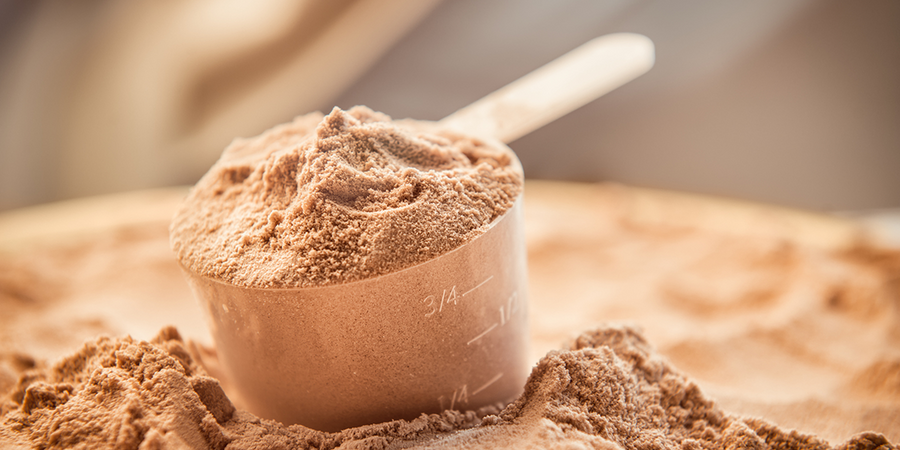
BCAAs vs. Protein: What's the Difference?
By Michael Martin
You know how important protein is for staying fit and muscular. But you might not know that much of its strength-building power comes from branched-chain amino acids (BCAAs). It's one acronym you want to keep in mind when putting together an eating plan or supplement regimen that'll help make your fitness goals a reality. BCAAs have several benefits that can help you get there.
Get BCAAs and over 20 grams of protein in each scoop of LADDER Whey and Plant Protein! Shop all premium supplements.
What Are BCAAs?
Branched-chain amino acids are three of the nine essential amino acids that the body can't produce on its own:
- Isoleucine
- Leucine
- Valine
Amino acids are the building blocks of protein, and protein is a building block of muscle. BCAAs are three of the most important amino acids for muscle growth and repair.
"In fitness training, BCAAs can serve a unique role in enhancing muscle recovery after physical activity," says Bansari Acharya, RDN, a registered dietitian nutritionist in Detroit. In particular, BCAAs can help optimize muscle repair and growth.*
Are BCAAs the Same as Protein?
BCAAs are not protein. They're some of the components of protein.
Protein is a macronutrient with numerous benefits for the body, particularly when it comes to fitness and exercise. "For weight management or athletic performance, protein helps build and repair muscle tissue," says Keith Hodges, a NASM-certified personal trainer in Los Angeles.
Protein also provides a slight temporary boost in metabolism (because of the energy required to digest it) and may help promote satiety. Satiety is key because it has the ability to help you feel fuller for longer, which can lead to a reduction in daily caloric intake.
Should I Take BCAAs And Protein?
BCAAs can't help your body synthesize protein on their own. They need to be consumed with the other essential amino acids to make a complete protein. "In my opinion, BCAAs and protein are equally important," says Hodges.
If you're interested in taking BCAAs and protein, chances are you won't have to buy two products. You'll just need a good-quality protein powder, such as LADDER Whey or Plant Protein, which provide BCAAs.
"The key is to get high-quality protein into your body soon after you finish exercising," says Trevor Thieme, CSCS, LADDER's senior director of fitness and nutrition content. "Your body can break that protein down into amino acids and use them to help optimize muscle recovery and growth."
Are Amino Acids Better Than Protein?
BCAAs and protein supplements work better together. While BCAAs are considered some of the most important amino acids for muscle growth, a major factor in muscle protein synthesis is played by the total amount of protein consumed, says Dimitar Marinov, MD, Ph.D., a physician who specializes in preventative medicine and nutrition. "It is much better for muscle protein synthesis and hypertrophy to consume more protein with high BCAA content rather than consuming BCAAs alone."
So be sure to consume plenty of protein from whole foods in addition to any supplements you take — you can get both protein and BCAAs from meat, fish, beans, eggs, and tofu, among other foods. "Remember that supplements aren't a substitute for food," says Hodges. "[You need to be] eating, hydrating, and sleeping according to the fitness goal you want to achieve."
*These statements have not been evaluated by the Food and Drug Administration. This product is not intended to diagnose, treat, cure, or prevent any disease.



